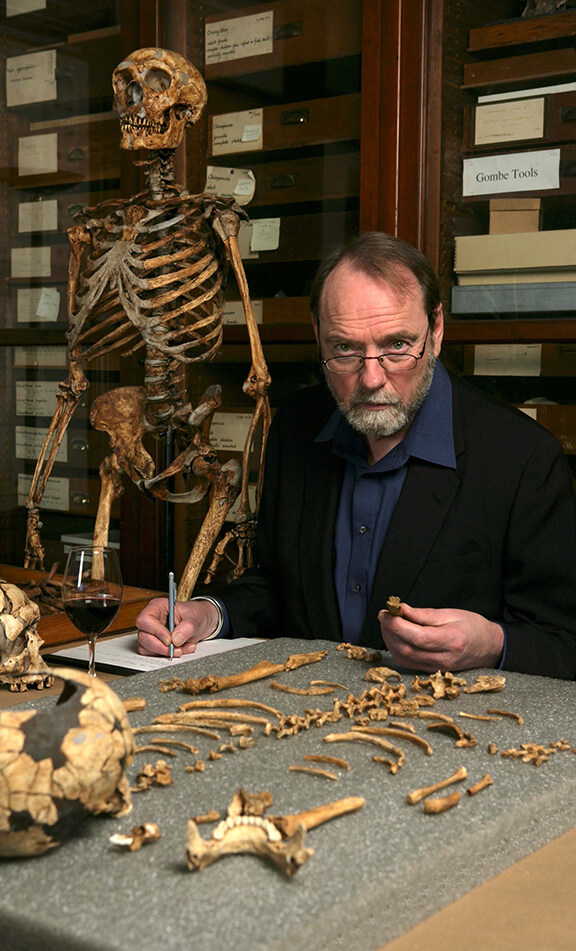Paleoanthropologist to discuss origins of human cognition
 Learn how modern humans acquired a unique style of thinking and came to dominate the planet while other human species went extinct.
Learn how modern humans acquired a unique style of thinking and came to dominate the planet while other human species went extinct.
Ian Tattersall will deliver a free, public lecture, “We Are What We Think: The Origins of Modern Human Cognition,” at 7 p.m. Monday, Oct. 5, in Hutchins Hall at the Collins Center for the Arts at the University of Maine.
The paleoanthropologist — he uses fossils and artifacts to study origins and predecessors of anatomically modern humans — is curator emeritus at the American Museum of Natural History in New York City.
“New scientific discoveries regularly shape our understanding of the origins of modern humans — the story of us,” says Gregory Zaro, UMaine associate professor of anthropology and climate change.
“Tattersall is an engaging speaker with a knack for articulating that story in an exciting and accessible way.”
Tattersall’s field research has led him to Madagascar, Sudan, Yemen, Vietnam, the Comoro Islands, Suriname and Borneo. He also has authored more than a dozen books, including “The Strange Case of the Rickety Cossack: and Other Cautionary Tales from Human Evolution.”
As curator, several of his exhibits included Ancestors: Four Million Years of Humanity (1984); Hall of Human Biology and Evolution (1993); and Hall of Human Origins (2007).
Born in England and raised in East Africa, Tattersall studied archaeology and anthropology at the University of Cambridge and geology and vertebrate paleontology at Yale University.
The lecture, held in conjunction with Maine Archaeology Month, is sponsored by the Hudson Museum, UMaine Anthropology Department, the Climate Change Institute and the Honor Society of Phi Kappa Phi.
Contact: Beth Staples, 207.581.3777
